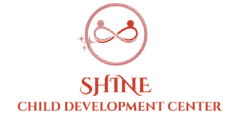Picky Eaters Program in Dubai
Turning Mealtimes Into Moments of Growth, Not Stress
Feeding difficulties affect up to 45% of typically developing children and 80% of children with developmental conditions (Kerzner et al., 2015). What begins as “picky eating” can sometimes lead to nutritional deficiencies, growth delays, and mealtime conflict, affecting a child’s health, confidence, and family well-being.
At SHINE CDC, our Picky Eaters Program uses a multidisciplinary approach to identify root causes and create positive, evidence-based solutions for children and families.
Why Feeding Challenges Require Early Support
Early intervention improves food variety, reduces oral aversions, and lowers caregiver stress (Marshall et al., 2015).
Multidisciplinary programs show better outcomes than single-specialist approaches (Silverman et al., 2020).

Program Goals
- Identify root causes of selective eating -sensory, motor, behavioral, or medical
- Expand accepted food range without pressure or coercion
- Improve oral-motor skills for chewing, swallowing, and feeding stamina
- Reduce feeding-related stress and anxiety for both child and parent
- Create enjoyable mealtime experiences and family harmony
Program Structure
Conducted by speech-language pathologists, occupational therapists, dietitians, and behavioral specialists
Includes feeding history, nutritional analysis, and oral-motor skill assessment
Sensory evaluation using standardized tools (e.g., Sensory Profile-2)
Strengthening exercises for lips, tongue, jaw, and soft palate
Gradual introduction of different textures, temperatures, and consistencies
Feeding therapy focused on chewing coordination and safe swallowing
Stepwise exposure to new foods (look → touch → smell → taste)
Play-based feeding activities to reduce food-related anxiety
Peer or group feeding sessions for positive modeling
Dietitian-created meal plans to ensure balanced nutrition
Parent coaching in responsive feeding strategies and positive reinforcement
Practical guidance on portion sizes, mealtime routines, and avoiding food battles
Applied Behavior Analysis (ABA) principles used when appropriate
Goal setting and positive reinforcement to celebrate progress
Reducing resistance while fostering curiosity and confidence

Expected Outcomes
Children and families benefit through:
Increased dietary variety and improved nutrition
Stronger oral-motor skills for eating and speech
Reduced stress and conflict at mealtimes
Greater child confidence in trying new foods
Why Parents Trust SHINE CDC in Dubai
Proven, Evidence-Based Approach
Our programs use trusted child development methods, delivering progress that parents notice both at school and at home.
Personalized Small-Group Learning
Children benefit from tailored attention and engaging peer practice, gaining skills, confidence, and real social growth.
Clear, Measurable Results
Each age group has defined goals, with visible progress tracking and open updates so parents always understand their child’s journey.
Accessible & Flexible for Families
Based in Dubai Silicon Oasis, with family-friendly schedules designed to make consistent learning easy and stress-free.
Next Steps
Start Your Child’s Growth Journey
Where confidence grows, resilience strengthens and friendships begin.
What ages can join the Picky Eaters Clinic?
Children from toddlers to early teens who struggle with selective eating or mealtime stress.
Who runs the program?
A multidisciplinary team of speech-language therapists, occupational therapists, dietitians, and behavioral specialists.
Does this clinic help children with autism or ADHD?
Yes. We specialize in feeding support for children with developmental conditions.
What if my child refuses all new foods?
We use gradual, gentle exposure and play-based strategies to expand diet without coercion.
